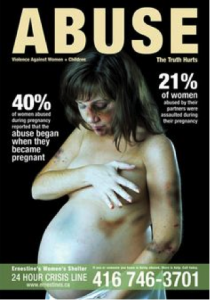When I first read that Stephen’s parents wished to not continue with surgery, I thought this was justifiable. Stephen is a minor, and thus it is up to the parents to decide his fate. However, it becomes apparent that the parents did not have extensive interactions with Stephen once he was admitted to Sunny Hill. A professional at Sunny Hill who had worked with Stephen commented that he was a “happy little fellow…[who] responded to people and smiled.. and giggled often” (pg 231). After reading this I questioned whether it was up to the parents to decide his fate. The case states that the person who should make the decision should have “the best knowledge of the patient’s condition and day-to-day life, [be] most concerned, and …bear the fullest impact of the decision” (pg234). The parents certainly do not meet the first criteria and the second and third criteria could be argued against their interest. In terms of autonomy, it is not clear what would be in the best interest for Stephen. Does the family have the right to decide that he be “allowed to die with dignity rather than continue to endure a life of suffering” (pg 231)? We cannot fully understand the life condition of Stephen through his perspective and thus is it ok for the parents to passively allow him to die when in reality Stephen may be enjoying his very simple life? In the eyes of non-maleficence, it seems like the logical move would be to interfere and carry out the procedure. This would likely not only do no harm, but also improve Stephen’s quality of life.
Ultimately, I believe the parent’s wishes should be supported and the operation should not be performed. This was a difficult case for me, as the details presented highlighted personable characteristics in Stephen, such as giggling and smiling. However, ultimately if the parents do not want to continue supporting him and believe he is enduring a life of suffering (a thought justifiable by his current state), I think it is appropriate to respect their wishes in light of appropriate allocation of resources. If the government steps in and over powers the parents, insisting the surgery be performed, the government has now taken over the care of this child. The facilities responsible for caring for individuals like Stephen are very costly and arguably this money could be spent more effectively. For example, the money could be spent on researching a cure that could prevent future circumstances like Stephen’s from arising. It is mentioned that Stephen was removed from the institute and placed in foster care because “Stephen’s condition was so poor and of such low quality, that the services and facilities could be better used by others” (pg229). This mindset would likely agree that with costs considered, it does not seem necessary for the government to go against the parents wishes to keep Stephen alive. When we are talking about state driven actions, the state has to act in a manner that is most just for all of its citizens, and a manner that is blind to emotion. Consider the case of Terri Schiavo. Was it just for the government to spend hundreds of thousands of dollars on her life support when this money could have gone to shelters for battered woman or infinite other social needs?
Work Cited:
Cerminara, Cathy, and Kenneth Goodman. “Ethics Programs .” Schiavo Timeline, Part 1. N.p., n.d. Web. 18 Feb. 2015.
“Ernestine’s Women Shelter.” N.p., n.d. Web. 20 Feb. 2015. <http://ernestines.ca>.
Thomas, John E., and Wilfrid J. Waluchow. “Case 6.4: Stephen Dawson: Should Severely Mentally Challenged Patients Be Treated?” Well and Good: Case Studies in Biomedical Ethics. Peterborough: Broadview, 1987. N. pag. Print.

I think you make a really good point, to say that if the government is going to step in and force the surgery to be performed then they should endure the cost going forward. But my question then become what if he pulls through, then who is to continue to support the patient, or the bills. Though the court made the decision to allow for the surgery to take place if it is proven to be necessary, it is the parents responsibility to pick up the cost?
If the surgery is performed on Stephen, his quality of life will be the same as it is currently. The case does not suggest there will be any improvement in Stephen’s health by repairing the blockage in his shunt. Thus, it is likely that keeping Stephen alive after the surgery will cost no difference than his current care costs. The case does not specify who is paying for his current care, but does state that he is in foster care. The family who has decided to foster care Stephen is likely being paid by the state around $700 a month (http://money.howstuffworks.com/economics/volunteer/opportunities/volunteer-for-being-foster-parent2.htm). Also, the case does not specify how Sunny Hill is being funded. It is possible that the Dawson’s insurance covers a percentage of the costs. If the family’s wishes regarding Stephen’s care are not being respected, I do not feel that they should “pick up” additional costs after the surgery.